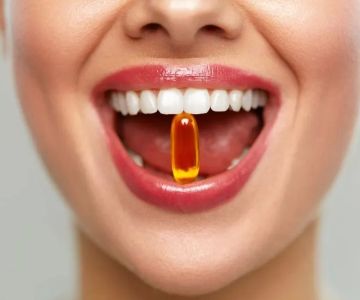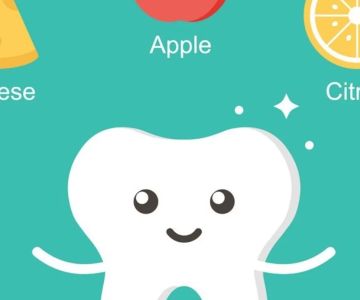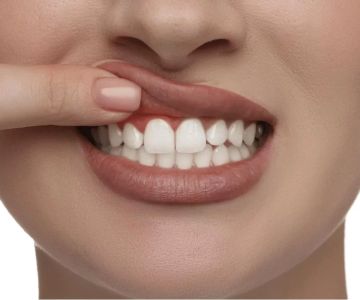Why a Balanced Diet is Important to Oral Health
When we think about maintaining good oral health, we often focus on brushing, flossing, and regular dental visits. While these practices are undeniably important, there is another vital aspect to consider: diet. What we eat plays a significant role in the health of our teeth and gums. A balanced diet not only nourishes your body but also helps prevent oral health issues like cavities, gum disease, and bad breath. In this article, we’ll explore why a balanced diet is so essential for your oral health and how you can incorporate tooth-friendly foods into your daily routine.
1. The Connection Between Diet and Oral Health
It’s no secret that a healthy diet is crucial for overall well-being, but many people don’t realize that it also impacts their oral health. The foods you eat influence the strength and appearance of your teeth, as well as the condition of your gums. Certain nutrients are essential for maintaining healthy teeth and gums, while others can contribute to problems like tooth decay and gum disease. By understanding the relationship between diet and oral health, you can take steps to protect your smile.
For example, when you consume sugary or acidic foods, they can break down the enamel of your teeth, leading to cavities. On the other hand, a diet rich in vitamins and minerals—such as calcium, vitamin D, and phosphorus—can help strengthen enamel and promote gum health. Let’s dive deeper into how these nutrients benefit your oral health and why balancing your diet is so important.
2. Nutrients That Promote Healthy Teeth and Gums
The human body requires a variety of vitamins and minerals to maintain healthy functions, and your teeth and gums are no exception. Some of the key nutrients that support oral health include:
2.1. Calcium
Calcium is perhaps the most well-known nutrient for supporting healthy teeth and bones. It helps to strengthen tooth enamel and supports the underlying structures of your teeth, such as the roots. Dairy products like milk, cheese, and yogurt are excellent sources of calcium. If you’re lactose intolerant or follow a dairy-free diet, there are plenty of plant-based options available, such as fortified almond or soy milk, leafy greens, and almonds.
2.2. Vitamin D
Vitamin D is another crucial nutrient for maintaining strong teeth and bones. It helps your body absorb calcium more effectively, ensuring that your teeth and bones get the support they need. Vitamin D can be found in fatty fish like salmon, fortified cereals, and eggs. It’s also produced by your body when exposed to sunlight, so be sure to spend some time outdoors to get your daily dose of this important vitamin.
2.3. Phosphorus
Phosphorus works closely with calcium to strengthen teeth and bones. It helps to remineralize tooth enamel, making it more resistant to decay. Phosphorus can be found in foods like eggs, fish, poultry, nuts, and legumes. Including these foods in your diet can help maintain strong and healthy teeth.
2.4. Vitamin C
Vitamin C is essential for healthy gums, as it helps maintain the tissue that supports your teeth. It also plays a role in wound healing and can help prevent gum disease. Citrus fruits like oranges, lemons, and grapefruits are rich in vitamin C, as well as other fruits like strawberries and kiwi. Vegetables such as bell peppers and broccoli are also excellent sources of this vital nutrient.
3. Foods to Avoid for Better Oral Health
While certain foods are beneficial for your oral health, others can have a negative impact. Some foods can promote the growth of harmful bacteria in the mouth, leading to plaque buildup, gum disease, and tooth decay. Here are some foods you should limit or avoid for better oral health:
3.1. Sugary Foods and Drinks
One of the biggest contributors to tooth decay is sugar. When you consume sugary foods or drinks, the bacteria in your mouth feed on the sugar and produce acids that attack tooth enamel. Over time, this can lead to cavities. Be especially mindful of sticky sweets like candies, gummies, and caramel, as they cling to teeth and can cause prolonged exposure to sugar. Sodas and sugary beverages, including fruit juices, are also problematic for your oral health.
3.2. Acidic Foods and Drinks
Acidic foods and drinks, such as citrus fruits, tomatoes, and vinegar, can erode tooth enamel over time. While these foods provide essential vitamins, they should be consumed in moderation. Additionally, be cautious with acidic drinks like coffee, wine, and soft drinks. Rinse your mouth with water after consuming acidic foods to help neutralize the acids and reduce their impact on your enamel.
3.3. Sticky Snacks
Sticky snacks like dried fruit, fruit bars, and granola can stick to your teeth and are harder to remove during brushing. This allows sugars to stay in contact with your teeth for a longer period, increasing the risk of tooth decay. If you do indulge in sticky snacks, be sure to drink water afterward and brush your teeth to remove any lingering particles.
4. The Role of Water in Oral Health
Water is essential for overall health, but it’s also a key player in maintaining good oral hygiene. Drinking water helps to rinse away food particles and bacteria in your mouth, preventing plaque buildup and tooth decay. Additionally, water helps to keep your mouth hydrated, preventing dry mouth, which can lead to bad breath and an increased risk of cavities. Be sure to drink plenty of water throughout the day, especially after meals or snacking, to support your oral health.
5. Creating a Tooth-Friendly Diet
To ensure your diet is supporting your oral health, it’s important to focus on eating a variety of nutrient-rich foods. A balanced diet should include plenty of fruits, vegetables, whole grains, lean proteins, and dairy or dairy alternatives. By incorporating foods that are rich in calcium, vitamin D, phosphorus, and vitamin C, you’ll be giving your teeth and gums the nutrients they need to stay strong and healthy.
Consider adding tooth-friendly snacks to your diet, such as raw vegetables, apples, and cheese. These foods not only provide essential nutrients but also help to clean your teeth as you eat. For example, crunchy vegetables like carrots and celery can help scrub away food particles from your teeth, while apples help to stimulate saliva production, which naturally cleans your teeth.
6. The Importance of a Balanced Diet for Long-Term Oral Health
Maintaining a balanced diet isn’t just about having a beautiful smile—it’s about supporting your long-term oral health. A nutritious diet helps prevent common dental problems like cavities, gum disease, and bad breath. By making healthy food choices and avoiding harmful foods, you can reduce your risk of developing dental issues and keep your teeth and gums in great condition for years to come.
Remember, your diet is only one part of the equation for good oral health. Regular brushing, flossing, and visits to your dentist are equally important in maintaining a healthy smile. By combining a balanced diet with good oral hygiene practices, you’ll be well on your way to achieving optimal oral health.







 Great Expressions Dental Centers - New City4.0 (362 review)
Great Expressions Dental Centers - New City4.0 (362 review) MapleTree Pediatric Dentistry4.0 (102 review)
MapleTree Pediatric Dentistry4.0 (102 review) Smile For All Family Dental0.0 (0 review)
Smile For All Family Dental0.0 (0 review) Tender Care Family Dentistry4.0 (61 review)
Tender Care Family Dentistry4.0 (61 review) Coventry Family Dental4.0 (247 review)
Coventry Family Dental4.0 (247 review) Rush Family Dental5.0 (161 review)
Rush Family Dental5.0 (161 review) The Importance of Oral Health Education During Pregnancy for a Healthy Pregnancy
The Importance of Oral Health Education During Pregnancy for a Healthy Pregnancy Best Tips for Brushing Your Teeth Properly for Healthy Gums: Essential Techniques for Oral Health
Best Tips for Brushing Your Teeth Properly for Healthy Gums: Essential Techniques for Oral Health Why Skipping Dental Checkups Can Lead to Bigger Oral Health Problems
Why Skipping Dental Checkups Can Lead to Bigger Oral Health Problems Advantages of Porcelain Dental Restorations
Advantages of Porcelain Dental Restorations How Can Diabetes Cause Tooth and Gum Problems? Preventing and Managing Oral Health Issues
How Can Diabetes Cause Tooth and Gum Problems? Preventing and Managing Oral Health Issues Healthy Habits for Promoting Good Oral Health and Hygiene: Tips for a Healthy Smile
Healthy Habits for Promoting Good Oral Health and Hygiene: Tips for a Healthy Smile